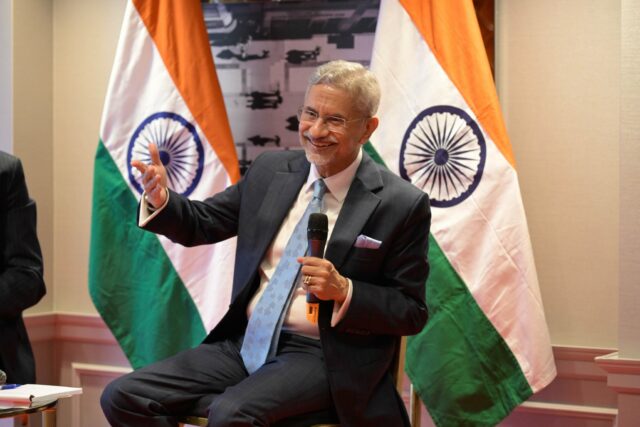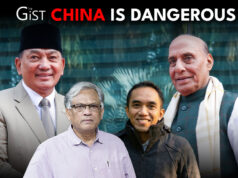SCO Condemns Israel Strikes
The Shanghai Cooperation Organisation (SCO) on Saturday issued a strongly worded statement expressing serious concern over the worsening conflict between Israel and Iran. Condemning Israel’s June 13 military strikes on Iran, the SCO called the action a “gross violation of international law” and warned of its implications for regional and global stability.
The SCO criticised Israel’s targeting of civilian infrastructure and its infringement on Iranian sovereignty. The group also extended condolences to the Iranian people and reaffirmed its call for a peaceful resolution to issues surrounding Iran’s nuclear program.
India Responds
India distanced itself from the SCO statement that condemned Israeli strikes on Iran.
The Ministry of External Affairs (MEA) clarified that India’s position had already been articulated on June 13 and remains the same. “We urge that channels of dialogue and diplomacy be utilised to work towards de-escalation, and it is essential that the international community undertake endeavours in that direction,” the MEA stated.
Notably, India did not participate in the drafting or discussions over the SCO statement. Reaffirming its independent diplomatic approach, the MEA added: “The overall position of India as stated above was communicated to other SCO members.”
Jaishankar Dials Iranian Foreign Minister
External Affairs Minister S. Jaishankar spoke to his Iranian counterpart Seyed Abbas Araghchi on Friday evening. Jaishankar conveyed India’s deep concern and reiterated the international community’s call for de-escalation. “He urged the avoidance of any escalatory steps and an early return to diplomacy,” the ministry noted.
Araghchi welcomed India’s message and expressed disappointment over the disruption of diplomatic channels. “We were in the middle of a diplomatic process… but the Israeli regime’s acts of aggression, including attacking Iran, assassinating military commanders, and killing civilians and academic elites, derailed the diplomatic path,” he said during the call.
Advisories Issued
Amid the deteriorating regional security situation, India has reissued emergency advisories for its citizens living in both Iran and Israel. Indian missions in Tehran and Tel Aviv urged nationals to remain vigilant and stay in regular touch with embassy channels.
MEA Spokesperson Randhir Jaiswal, in a post on social media platform X, advised Indian citizens in Iran to make use of emergency contact lines for assistance. The Indian embassy in Tehran formally advised residents to avoid non-essential movement, follow safety protocols, and monitor official updates.
Similarly, the Indian embassy in Israel urged Indian nationals to adhere to safety advisories from Israeli authorities and the Home Front Command. Citizens were advised to remain close to shelters and avoid travel unless necessary.
West Asia On Edge
These developments come in the wake of a dramatic escalation on Friday, when Israel launched what it termed targeted strikes against Iran’s nuclear and military leadership. Among those killed were General Hossein Salami, commander of the Islamic Revolutionary Guard Corps (IRGC), General Mohammad Bagheri, Iran’s top military officer, and six senior nuclear scientists. Iran retaliated by firing missiles at major Israeli cities, with explosions reported in Tel Aviv, Jerusalem, and several other areas.
Iran’s Supreme Leader Ayatollah Ali Khamenei condemned the attacks as “an act of war,” accusing Israel of deliberately targeting residential areas. Israeli Prime Minister Benjamin Netanyahu defended the offensive, asserting that the aim was to dismantle a “brutal dictatorship,” not to harm the Iranian people.





